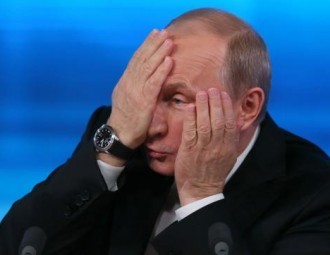Sergei Krivenko: Russia President knows about Tonkacheva’s deportation but gives no reaction

However, the reaction might be diverse. It would be a good thing if human rights defendants or activists with Belarusan citizenship were not deported from Russia in response.
On the threshold of consideration of Elena Tonkacheva’s case by the Belarusan law enforcement officials the Russian Presidential Council for Human Rights asked the Russian Foreign Ministry to support the head of the Legal Transformation Center “Lawtrend”, who has been living in Belarus since 1985, but had a Russian citizenship.
However, there was no sign of the Russian Embassy’s representatives at the consideration of Tonkacheva’s case.
On November 5 in court of the Department of Internal Affairs in the administration of the Pershamaiski district in Minsk Russia was represented by Sergei Krivenko, a member of the Presidential Council for Civil Society and Human Rights.
“EuroBelarus” Information Service asked Sergei Krivenko whether any reaction on behalf of the Russian authorities followed, as it has already been two weeks since the decision about deportation of Elena Tonkacheva from the country with the ban to enter Belarus for three years.
- I can only talk about the actions of the Council for Human Rights; the reaction of the authorities is ambiguous, or, not clarified, let’s say. Before the case was considered, the chairman of the Council Mikhail Fedotov sent a letter to the Foreign Ministry asking to control this process and prevent the decision of deportation. But the Foreign Ministry hasn’t even sent its instructions to the Russian Embassy in Belarus. After my report about the visit to Minsk the head of the Council for Human Rights Fedotov wrote a second letter to the head of the Foreign Ministry, pointing at the inadmissibility of such attitude towards the fellow countrywoman.
According to Sergei Krivenko, “I know exactly that the president Vladimir Putin is informed about Elena Tonkacheva’s case”.
- Perhaps, he already gave some instructions; but we know nothing about it yet. We don’t see the reactions of the Russian authorities yet.
Krivenko also reminds about the possibility “of a whole range of reactions”.
- For instance, Belarusans are deporting Elena Tonkacheva from Belarus, while Russians might deport some Belarusan human rights defendant in response. This might be the reaction, which is undesirable. But I think that the degree of reaction demonstrates the quality of the Union State of Russia and Belarus. A hostile state in confrontation with the other is one thing, but the so-called “state of two fraternal nations” is the other.
The Council for Human Rights will continue seeking justice; however, Krivenko notes that “unfortunately, in Russia the situation with the civil society is also very complicated”.
- We feel pressure on non-governmental and human rights organizations. Unfortunately, we are social outcasts ourselves in our country. But nevertheless, we won’t leave Elena without support now.
-
03.01
-
07.10
-
22.09
-
17.08
-
12.08
-
30.09



























